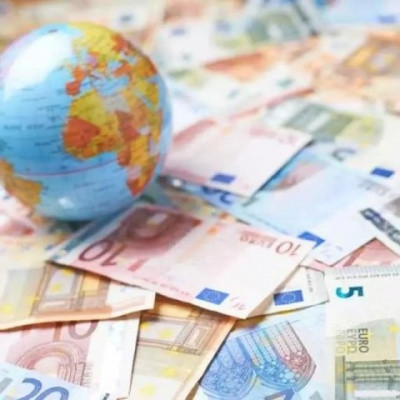(单词翻译:单击)
Fifteen years ago, as the head of China research at UBS, I was threatened by two Chinese companies listed on the Hong Kong Stock Exchange. One of the two, Greencool Technology, sued me and my employer for libel. The other, Euro-Asia Agricultural Holdings, was equally threatening. I had written negative researchon both companies, and their stock prices had tanked as a result.
15年前,当我担任瑞银(UBS)中国区研究部主管时,我受到了两家在港交所(HKEx)上市的中国企业的威胁。其中之一的格林柯尔科技(Greencool Technology)以诽谤罪名起诉我和我的雇主。另一家欧亚农业(Euro-Asia Agricultural Holdings)也同样来势汹汹。此前,我撰写了不利于这两家公司的研究报告,它们的股价由此大跌。
Within two years, both companies, which boasted market values of billions of dollars at their peak, had gone bust. And then the chairmen of the day — Gu Chujun of Greencool and Yang Bin of Euro-Asia — were put behind bars in China.
不到两年,这两家在顶峰时市值曾达数十亿美元的公司都崩盘了。接着,两家公司的董事长——格林柯尔的顾雏军和欧亚农业的杨斌——都在中国锒铛入狱。

Was justice served? No — at least, not completely. Both chairmen were punished for their criminal offences. But in neither case was their fraud in the capital markets mentioned, let alone punished. The large numbers of investment bankers, auditors, directors, corporate executives involved have escaped proper scrutiny. Worst of all, neither the relevant government departments nor the public have learnt a lesson.
正义得到伸张了吗?没有,起码没有完全伸张。两名董事长的刑事罪行受到了惩罚。但两案均未提及他们在资本市场的欺诈行为,更不要说依此处罚了。牵涉其中的大量投行家、审计师、董事和公司高管,都逃脱了恰如其分的追究。最糟糕的是,不论是相关政府部门还是公众,都没有从中吸取教训。
To me, sleepless nights were not the only damage I suffered from the case. I have endured censure from many of the hundreds of retail and even institutional investors. They blamed me for their financial losses: had I not raised questions about these troubled companies, they might have unloaded the stocks in good time and in doing so booked tidy profits — or so they argued. Many questioned my motives; some even asked whether my employer held short positions in the shares, meaning it would benefit from plunging prices.
对我而言,失眠并非这些案子对我造成的唯一损害。我受到数百散户甚至机构投资者中许多人的责难。他们谴责我让他们亏了钱:若不是我对这两家有麻烦的公司提出质疑,他们或许来得及卖掉股票,借此斩获丰厚利润——至少他们是这么声称的。许多人质问我的动机何在;有些人甚至问,我的雇主是否正在做空这两只股票,意思是瑞银将受益于股价下跌。
In those days, despite the high-profile court cases and widespread media coverage of my role, no government agency ever asked me about my doubts regarding the two companies. They never inquired about the investigative field trips — to check out whether, say, certain factories were indeed producing the widgets they said they were producing — that sparked my concern. I was largely left to fend for myself. Having become known as a “black mouth” — someone who calls public attention to corporate wrongdoing — I received strange, sometimes hostile, stares of recognition on the streets of Hong Kong and big Chinese cities.
那段日子里,尽管法庭审案引起不小轰动,媒体也对我的作用做了广泛报道,但没有一个政府部门向我询问我对两家公司的怀疑。他们也从未询问我的现场调查之行(目的是查清一些事实,比如说有些工厂是否正在生产他们号称在生产的新产品)。这让我感到担忧。我基本上只能依靠自己为自己辩护。人们把我称为“黑嘴”(呼吁公众关注公司不当行为的人),在香港和中国大城市的街头上被人认出时,有些人会用奇怪、有时满怀敌意的目光瞪着我。
My employer, UBS, was one of my few sources of support. It not only funded my legal bills but also allowed me to continue in my job. My colleagues in the equity sales, wealth management and investment banking departments also faced negative comments from customers, including rich individuals, fund houses and corporate clients.
支持我的人不多,我的雇主瑞银是其中之一。瑞银不但为我支付了打官司的费用,还让我继续任职。我在股票销售部、财富管理部和投资银行部的同事们也面对着客户(包括富人、基金公司和公司客户)的负面言论。
Today, I am the chairman of a company that is publicly quoted in Hong Kong, and I sit on the boards of others. Laws and rules for public companies and their directors are clear, if tedious. But in my view there is still far too much tolerance in the government and among the Chinese public at large about illegal and improper behaviour in the capital markets.
如今,我是一家香港上市公司的董事长,也是其他多家公司的董事。规范公开上市公司及其董事的法律和规则写得明明白白(即便有点繁琐沉闷)。但我认为,政府和中国公众对于资本市场上的违法和不当行为还是太宽容了。
Everyone seems to agree that stealing money is both a crime and ethically wrong; yet when it comes to stealing money from crowds (the market), or from a large number of strangers (again, the market), our moral judgment is somehow less clear if we are not the direct victims. Even when we are the victims, the sense of grievance fades very quickly. Illegal and improper behaviour is sometimes even admired as financial engineering or deft use of ingenious skills.
似乎所有人都认同,偷钱既犯罪,又缺德;然而,如果是偷众人(市场),或者大量陌生人(又是市场)的钱,而我们自己不是直接受害者的话,我们的道德判断就有点不那么明确了。即便我们真是受害者,委屈感也会很快消失。违法和不当行为有时甚至受到人们的敬佩,认为那是金融工程或高超技能的运用。
When large numbers of people throw rubbish in the street and we tolerate it, we should not be surprised to find that our streets are as dirty as they are. When polluters go unpunished, we must be prepared to live in a toxic environment — and we do. Likewise when the regulators clamp down on stock market manipulation, many in the public seem at best uninterested — with predictable consequences. When the anti-corruption drive began to unfold in China two years ago, parts of the business world seemed concerned mainly about a negative effect on the health of the economy. They invoked the old saying: “If the water is too clean, you will not catch any fish”; or, to put it another way, the creatures will survive only in “muddy waters”. The inference is: “Do not be too hard on crooks or corrupt officials. Do not be too strict on friends. No one is perfect.”
当很多人往街上倒垃圾,而我们容忍这种做法时,我们发现街道很脏就不应感到惊讶。当排污者得不到惩罚时,我们必须准备好居住在有毒的环境里——目前我们确实如此。同样,当监管机构打击股市操纵时,许多公众似乎往好了说是不感兴趣。当中国两年前发起反腐败斗争时,商界有些人似乎主要担心反腐对经济健康的负面影响。他们援引古谚:“水至清则无鱼”,换言之,生物只有在“浑水”里才能生存。按此逻辑,结论就是:“不要对骗子或腐败官员太狠。不要对朋友太苛刻。人无完人。”
Corporate governance has greatly improved in this part of the world in the past 15 years. But in my judgment there is still much more the regulators can do. Some kinds of wrongdoing in the capital markets are almost public knowledge. The only thing the government needs is more resources, more talent and more determination. A market overseen by tough regulators benefits all.
过去15年里,亚洲上市公司的治理水平有了很大提高。但我认为,监管机构还有很多工作可做。资本市场里的某些不当行为几乎尽人皆知。政府需要的只是更多资源、更多人才和更大决心。监管者对市场实行严厉的监管,对各方都有好处。


